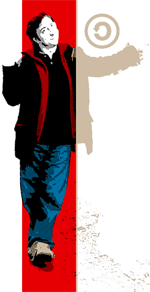Existing Internet model is best equipped for challenges of a growing Internet
RIO DE JANEIRO, BRAZIL, 12 November 2007 – The Internet Society (ISOC) today reinforced its longstanding position that the Internet model of open, collaborative processes and stewardship is necessary to ensure sustainable development of a truly global and inclusive Internet.
As the world’s Internet community gathers in Rio de Janeiro for the second Internet Governance Forum (IGF), the Internet stands at an important time in its history. Its own success and popularity have brought it to a level where is it now a necessary part of life for individuals, governments, local communities, civil society, and global commerce.
Leslie Daigle, ISOC’s Chief Internet Technology Officer, believes that careful, sustainable development of the Internet is needed to ensure that it remains ubiquitous and open.
“The Internet will always be a work in progress,” explains Daigle. “There will always be things we need to develop and improve, but it is vital that we, as a community, avoid taking actions that could lead to a fragmented Internet.”
A ‘fragmented’ Internet could arise if ‘islands’ form – networks cut off from the rest, breaking the end-to-end communication model, which drives the value of Internet. Such islands could form along a number of lines, such protocol, service, linguistic, and other differences.
According to Daigle, one of the challenges that continues to invigorate the Internet technical community is charting the best path forward for an unfragmented Internet.
“Practically speaking,” says Daigle, “the Internet technical community must work hard to ensure an orderly process for the transition from IPv4 to IPv6.
It must also continue to develop appropriate technologies and practices to ensure a truly multilingual Internet experience for global users”.
Ensuring the right solutions now requires concerted effort in developing standards and identifying and considering operational requirements. It needs effective collaboration between the existing responsible bodies, such as the Internet Engineering Task Force (IETF), Regional Internet Registries (RIRs), operator groups, and others.
ISOC is at the hub of this community, uniquely positioned to promote effective collaboration. ISOC firmly believes in the need to recognise and respect the various commercial, political, and social interests involved.
But, as Daigle says, “beyond those interests, we must also foster an environment of common interest. We have to continue to support and promote the spirit of the original Internet collaborative model, where everyone can come together regardless of their private interests and work by consensus towards a common goal”.
“One of the great thing things about the Internet model is that you don’t know where the answers will come from. The model is inherently creative and that’s why the Internet is still expanding.”
– – – – – – –
About ISOC
The Internet Society (www.isoc.org) is a not-for-profit organisation founded in 1992 to provide leadership in Internet related standards, education, and policy. With offices in Washington, DC, and Geneva, Switzerland, it is dedicated to ensuring the open development, evolution, and use of the Internet for the benefit of people throughout the world.
Other ISOC links
Resources on standards and protocols:
. http://isoc.org/standards/
For further details
Mark Thalhimer
Director of Communications and Public Relations, Internet Society
E-mail: thalhimer@isoc.org
Telephone: +1 703 326 9880 x130
1775 Wiehle Avenue
Reston, VA 20190-5108
USA

